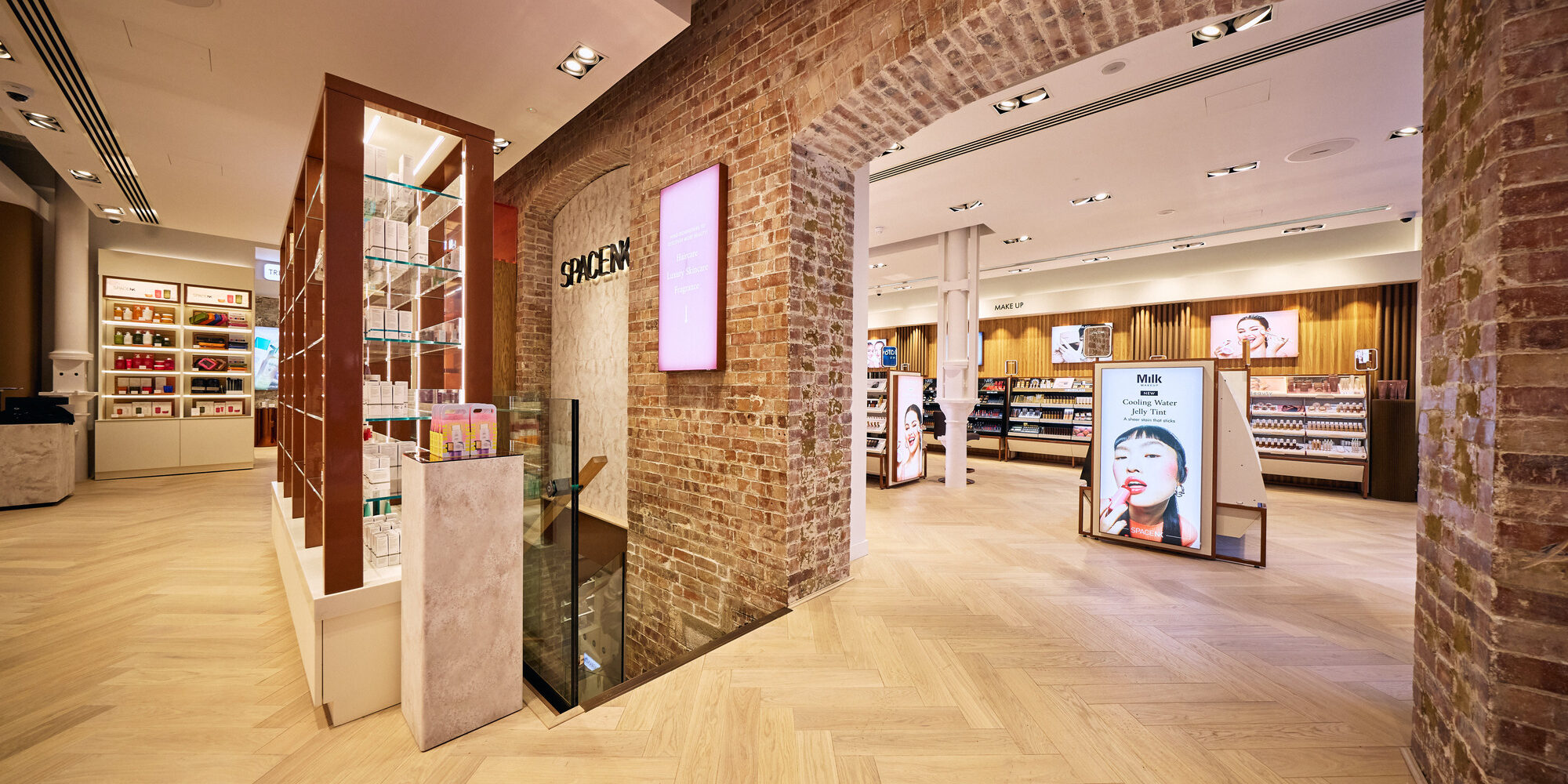
How Space NK Is Keeping Its Edge Amid Fierce Competition
As Sephora moves in on its territory in the United Kingdom, Space NK is showing it can hold its own.
Noting the beauty specialty chain is in its fourth year of registering 30% sales growth, Margaret Mitchell, chief commercial officer at Space NK, says, “We’re the fastest-growing beauty retailer in the U.K. and have ambitious plans to continue accelerating.”
Operating 79 locations across the U.K. and Ireland, Manzanita Capital-owned Space NK will open its 81st location by the end of the year. It carries over 180 beauty brands ranging from masstige to luxury pricing, including Nars, Hourglass, Reome, Tata Harper, Sunday Riley, Milk Makeup, Starface, Skin Rocks and K18. Sephora’s footprint is much smaller in the U.K., and the LVMH Louis Vuitton Moet Hennessy-owned retailer will soon open its seventh store in the country since reentering it in 2021.
On stronger turf for Sephora in the United States, Space NK exited in June when it sold off its American wholesale division to beauty distribution company PCA Companies for an undisclosed sum. The deal included 600 points of distribution at Nordstrom, Nordstrom Rack, Bloomingdale’s, Hudson Bay and Walmart, where the retailer had planted shop-in-shops in 2022 called BeautySpaceNK. The retailer had eight standalone boutiques in the U.S. before closing them in 2020 and pivoting to wholesale.
Earlier this year, speculation swirled about Space NK putting itself on the market. In April, British news outlet Sky News reported it aimed to fetch between 300 million and 400 million pounds or approximately $379 million and $505 million in a deal.
Beauty Independent spoke with Mitchell about Space NK’s store expansion strategy, the role that exclusivity plays in its assortment, Sephora’s effect on British beauty retail, hot beauty categories and ones that aren’t so hot.
How’s the business been performing this year, and what’s fueling growth?
We have ambitions to continue opening stores as well as upgrading or relocating our existing stores. A couple good examples of that are our Duke of York store in Chelsea. It’s our No. 1 store. It was always a great store for us in terms of performance, and we had the opportunity to increase the size by about 50% to 60%. We did that last year, and it’s just gone from strength to strength. We moved our Manchester store into the Arndale Center earlier this year and upsized it from about 1,000 square feet to about 3,000 square feet.
We also moved our Covent Garden store in June and that was after having upsized it just two years ago. It’s in our top three stores now and that’s because we’re seeing such high footfall growth. Year-to-date, we are on about 70% footfall growth in our stores. In terms of like-for-like footfall, excluding the new stores, we’re still on target for about 30% growth. This is in an environment in the U.K. where retail footfall is flat, so this is very much unique to Space NK.
In addition to that, we have invested pretty significantly in technology and in marketing. For us, it’s not a zero-sum game. It’s not that stores grow at the expense of online or online grows at the expense of stores. We have a very omnichannel customer and an omnichannel way of thinking. So, the tide rises together, and this is really driven by how we think about the customer.
We put the customer at the heart of everything we do, and we measure all of our success in terms of them. Every KPI, every metric, every budget in the business is built first around the number of customers that we expect to come in the business and how we expect them to behave over the course of the year. We believe that, if we manage those customer metrics, then the financials will look after themselves.
That mindset is really what we’ve been living and breathing for the last few years and is driving this growth. We have a really robust CRM team and detailed customer insights that come out on a regular basis. We know that 30% of online customers with an abandoned basket go on to transact in store within two weeks.
Having those types of insights means you think about your website differently. Your website’s not just a catalog for shopping. It’s a really important channel for education, communication, marketing and building brands as well. We personalize and build different experiences on site in order to drive the overall customer lifetime value, not just that one transaction in the moment.
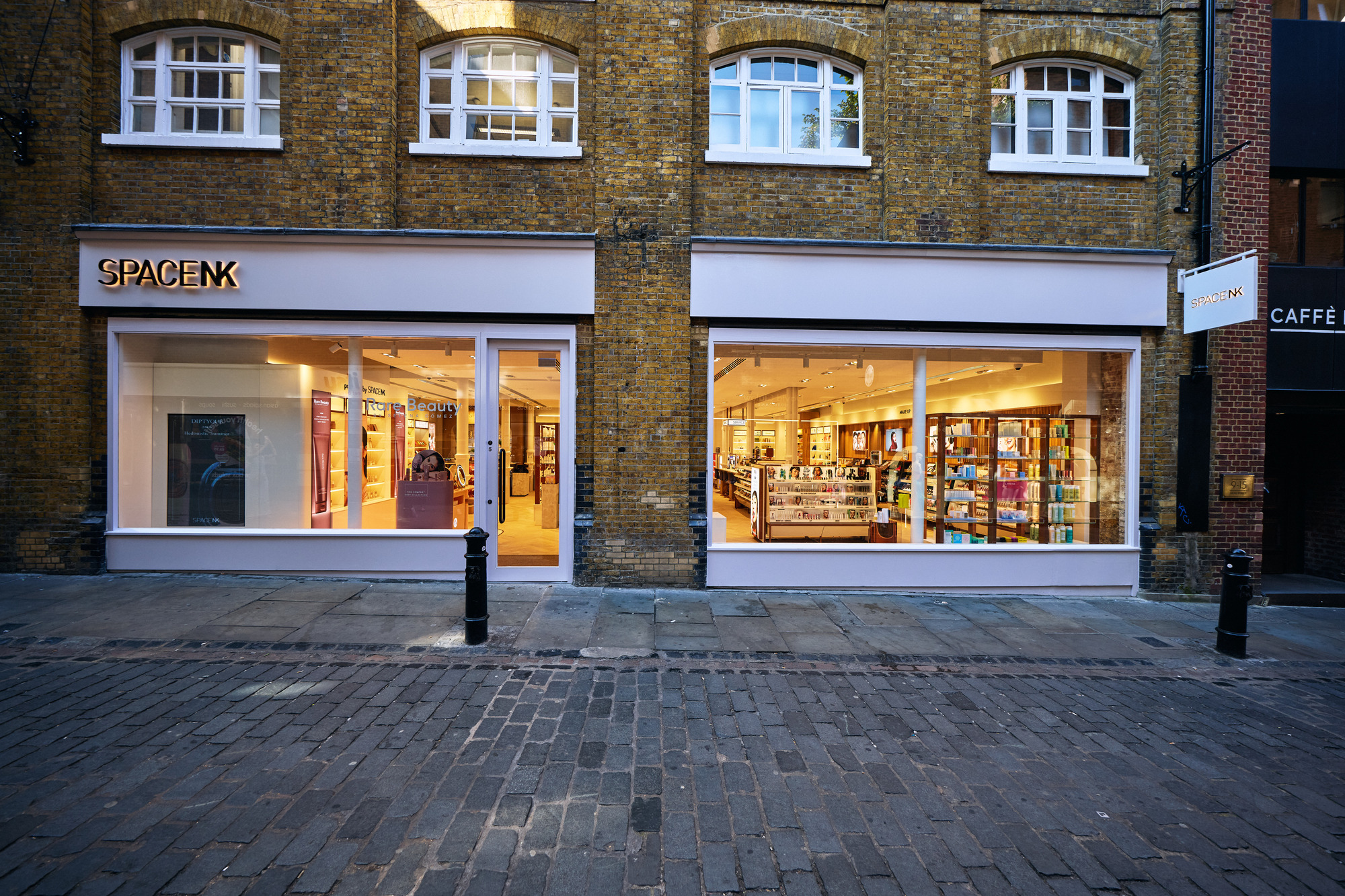
What’s pulling customers into Space NK stores?
We have really deep partnerships with our brands, and we invest heavily in building their brand equity. That’s one of the biggest reasons for us investing in stores. The new concept that we launched in Battersea in 2022 creates a lot of opportunities for brands to express themselves and that helps bring customers in. It also allows us to attract brands to continue building our own assortment.
We’ve also done really cool things online from a brand building perspective that no one else is doing. When we launched Tatcha exclusively in May 2022, we had a feature on our homepage that we called Tatcha mode that you could toggle on, and the entire website was skinned into being a Tatcha microsite. I don’t think there’s many retailers that would give over their homepage to create something so disruptive for a brand.
Every brand in our assortment needs to have a customer job that it’s doing. We know if a brand is going to drive new customers or if it’s going to appeal to an existing customer. That’s how we think about putting our assortment together.
We don’t look at ourselves as a luxury retailer, a prestige retailer or a masstige retailer. Those artificial beauty industry definitions around price aren’t how we think. We just have a unique way of pulling brands together. I think there’s no other retailer in the world where you would find Naturium and Augustinus Bader sitting on the shelf next to each other.
Naturium is a Target brand in the U.S. and Bader is a luxury department store brand, but they’re both really in-demand brands that the customers are desperate to get their hands on. If they’re both on the customer’s bathroom shelf, then they should absolutely live in a shop together.
How important are exclusives to Space NK and has securing them become more challenging as the market has evolved in the U.K.?
Exclusives are important to us, especially when a brand is launching into the U.K. We are investing heavily in marketing, so it is important that we see the return on that investment. It’s something that we are always actively talking about with our brands. I would say at least half of our top 10 brands are what we would consider exclusive to us.
There’s no question that the U.K. is a competitive market, but I think we have a really clear position as being the launchpad in this market. For any brand that’s launching into the U.K. and wants to make a big splash, they want to start with Space NK.
How has the reintroduction of Sephora into the U.K. affected Space NK?
The U.K. is an incredibly important market and is often the international proof point for brands that are building value and scaling. Sephora coming in has definitely put a spotlight on the U.K. beauty market. We welcome that because we’re glad that people are coming here and looking at what everyone’s doing. We have real confidence in our stores and in how we do things. Competition in any industry is good. It is good for the consumer.
It is a different market here than the U.S. The department stores remain strong with the likes of Harrods and Selfridges and especially with Liberty and John Lewis. The U.S. has really seen department stores decline in a way that hasn’t quite happened to the same extent here. There are also really strong pure players here as well. It’s very dynamic, and we’ve always had to work really hard to win the customer and the brands. That just makes us sharper and better.
What’s the breakdown between physical and e-commerce sales at Space NK?
Stores are 55% and online is 45%. Seventy-five, 25 is generally where other multibrand beauty retailers sit, from what I hear. We over-penetrate online versus others. That speaks to that omnichannel expertise and really knowing our customer. We know that, if a customer shops online, it doesn’t cannibalize their store behavior. It’s incremental. It drives their lifetime value.
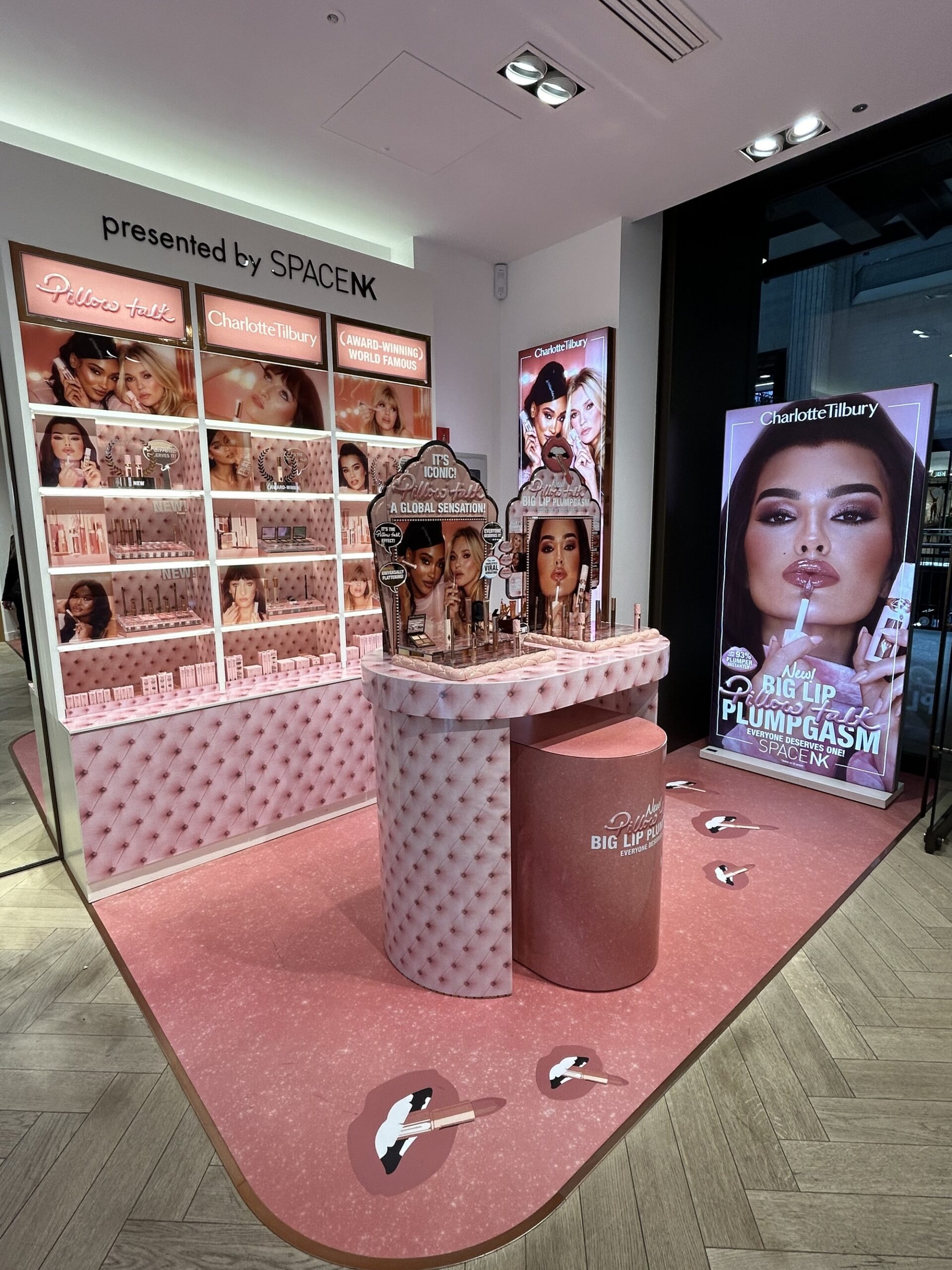
What’s Space NK’s store expansion strategy?
We’ve had a goal of eight to 10 openings a year for the last two to three years now. That is a combination of new stores as well as the upsizes and relocations. That is the pace that we’re working with and that will continue. Staying steady is certainly the strategy.
As far as location, it starts with looking at who the customer is and where centers of gravity are. If we’re looking across the different types of locations, city centers and business districts perform really well for us. These are stores like Canary Wharf or Spitalfields in Shoreditch.
Then, we’ve bought on shopping center stores, which has been a big push for us over the last couple of years. It’s not necessarily a new space for us, but a space where the new concept has really performed exceptionally well. The neighborhoods and high streets, of course, are also our heartland and a really important part of who we are as well.
The British customer is different from a U.S. customer. People will go to their local high street, but they won’t necessarily drive every single weekend to a big shopping center, so having those neighborhood and high street stores has been incredibly strategic and differentiating for us.
What’s working well for Space NK now product- and category-wise?
We’re seeing incredible growth in makeup, not just with new brands. We have some incredible new brands that are just blowing us away like Glossier as well as Westman Atelier and Lisa Eldridge, but we’re also seeing strong growth from Charlotte Tilbury, Hourglass and Rare Beauty, which we launched exclusively into the U.K.
The thing that makes me excited as well is seeing some of those younger brands starting to grow. A brand that we’ve really got our eye on that is going from strength to strength is Vieve. What they’re doing really well is being quite methodical and not doing things too quickly. Brands can overextend themselves when they’re small. Their new Skin Nova Complexion Balm launched in September and was our No. 2 foundation out of the whole business and No. 1 online. For a small brand to be driving the complexion category, sitting up there with the likes of Charlotte Tilbury and Hourglass, it is a really cool thing to see.
Glossier’s Boy Brow has taken the top spot in our brow category, but their You fragrance also has been incredible. In general, the fragrance category is very dynamic right now. It’s a category that we really invested in, from partnering with our brands to step-change their visual merchandising to introducing a lot of new elements into the stores like digital screens that bring the brands to life and experiential travel-type fixtures so that people can experience fragrance in different parts of the store.
The marketing team did an incredible pop-up in Covent Garden earlier this year to create a very experiential fragrance moment. We had queues for three hours to get in and over 2,500 people went through the pop-up in four days. It featured brands like Diptyque, Byredo and D.S. & Durga.
Fragrance brands like DedCool and Phlur have been huge for us this year. The younger, more digital customer whose very social media-driven is coming into store and experimenting with fragrance. We are seeing body mists within the fragrance category from brands such as Sol De Janeiro perform.
We have a female-driven fragrance business. We find that there are more and more brands wanting to launch with us to build their feminine range and authority with that customer. We launched Creed last week and have also introduced a few other brands like Hermes and Bulgari. We’re growing faster in fragrance than the market by about five times.
What about skincare?
Skin is still our No. 1 category and biggest category. We’re seeing growth across the board. Some of our best-performing brands are Tatcha and U.K. brands like Medik8, which is a blockbuster here. People are starting to realize that in the U.S. now, so I’d say that brand is definitely one to watch there.
Summer Fridays is having a huge, huge year. We have a really strong business with them on their Vitamin C range. Naturium, which we launched exclusively in body care and skincare, is strong, too, as well as Augustinus Bader and La Mer.
Space NK has been famous year in year out for the quality of the advice that we give in store and online, and that really shows in our product mix. Treatments, which is how we classify anything that’s a bit more advanced like serums, face oils, masks and peels, is our biggest skincare category.
Online, we have a function that our tech team built in-house called My Matches. It matches products to our customers either using existing data from their past purchases or if they fill out a quiz. We’ve seen that be an incredible driver of purchase frequency as well as a helpful tool for customers shopping online for the first time. It’s investments like that allow our online business to grow and thrive.
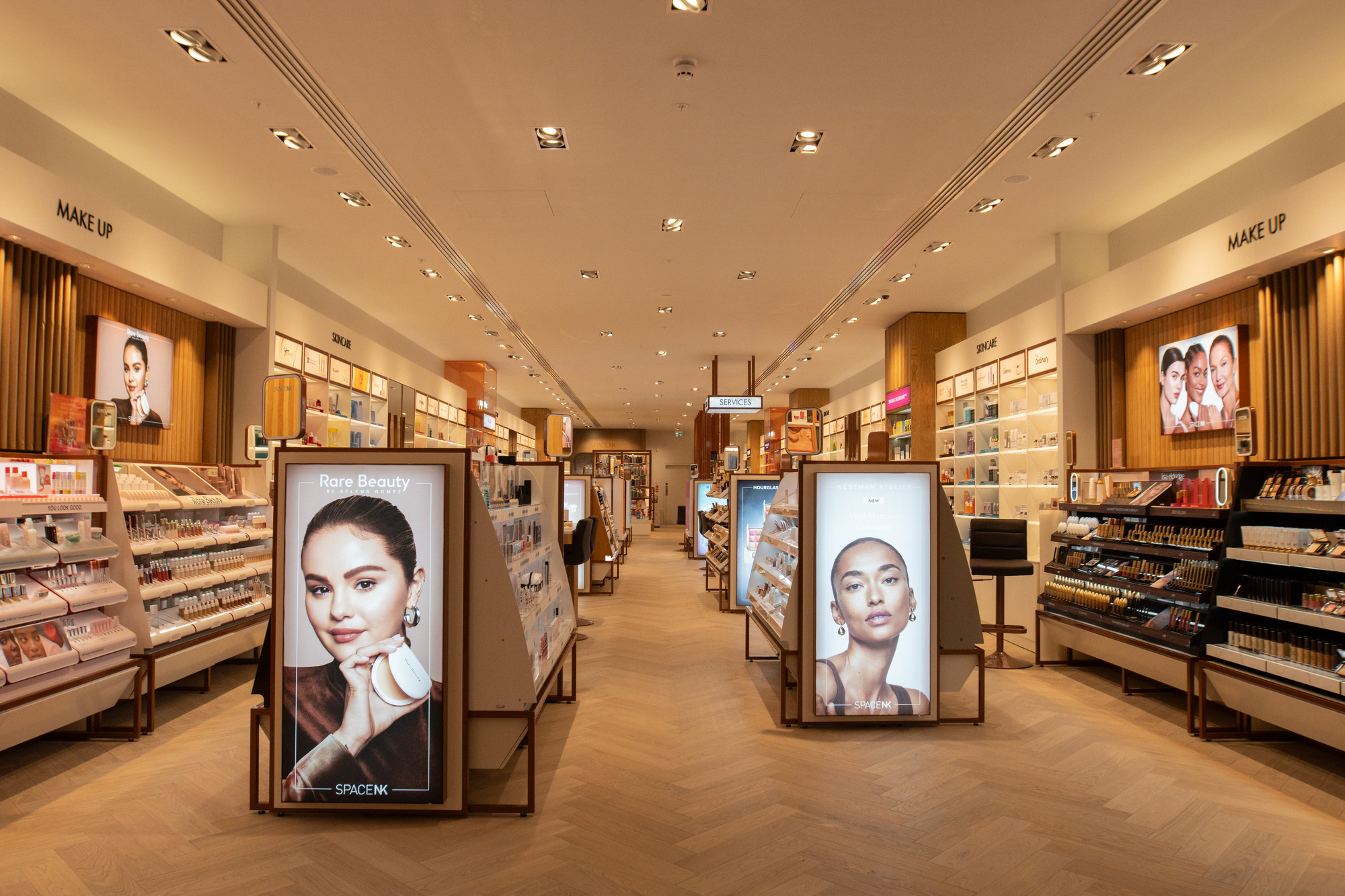
What trends are decelerating?
There were definitely a lot of trends during COVID that really boomed, especially around home fragrance, but that’s admittedly been a tougher category for us the last few years. Home fragrance was always a really big part of our fragrance business. So, we are investing in personal fragrance and juices now because that’s really where we see the customer going.
We tend to not jump on trends like CBD, for example. We believe in building longevity with brands and really building their core. So, we don’t necessarily see things come and go the way that other retailers might, but we do see when things come in and out of fashion.
Certainly, what’s in fashion now is the space that we’ve always been in is efficacious, science-backed ingredient-led skincare. The more natural or organic space that was really big in the U.S. never quite got a foothold in the U.K. You can’t say “clean” in the U.K. The customer here has always been very discerning and questioned that term.
Clean and natural are evolving away in the U.S. now from what I’m observing, it’s more about efficacy and performance of skincare. We are definitely seeing that, too, but we didn’t necessarily see it ever go away for us here.

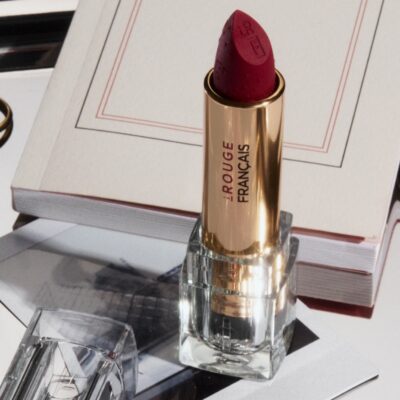
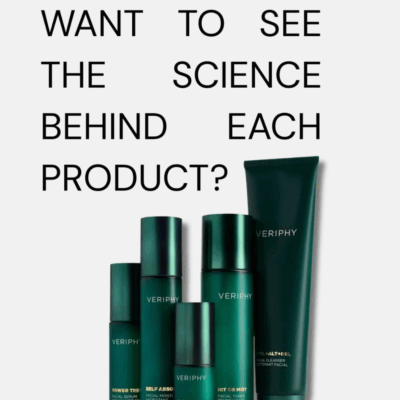
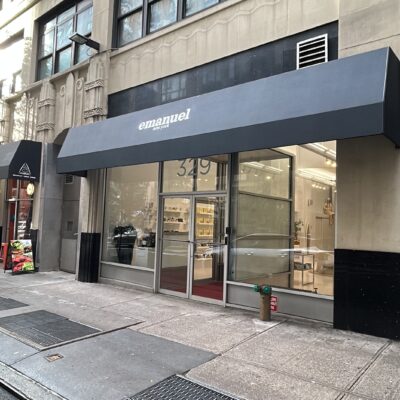
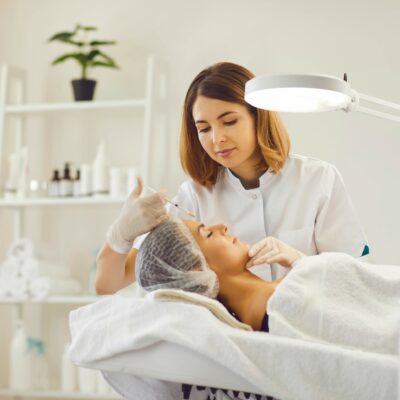
Leave a Reply
You must be logged in to post a comment.